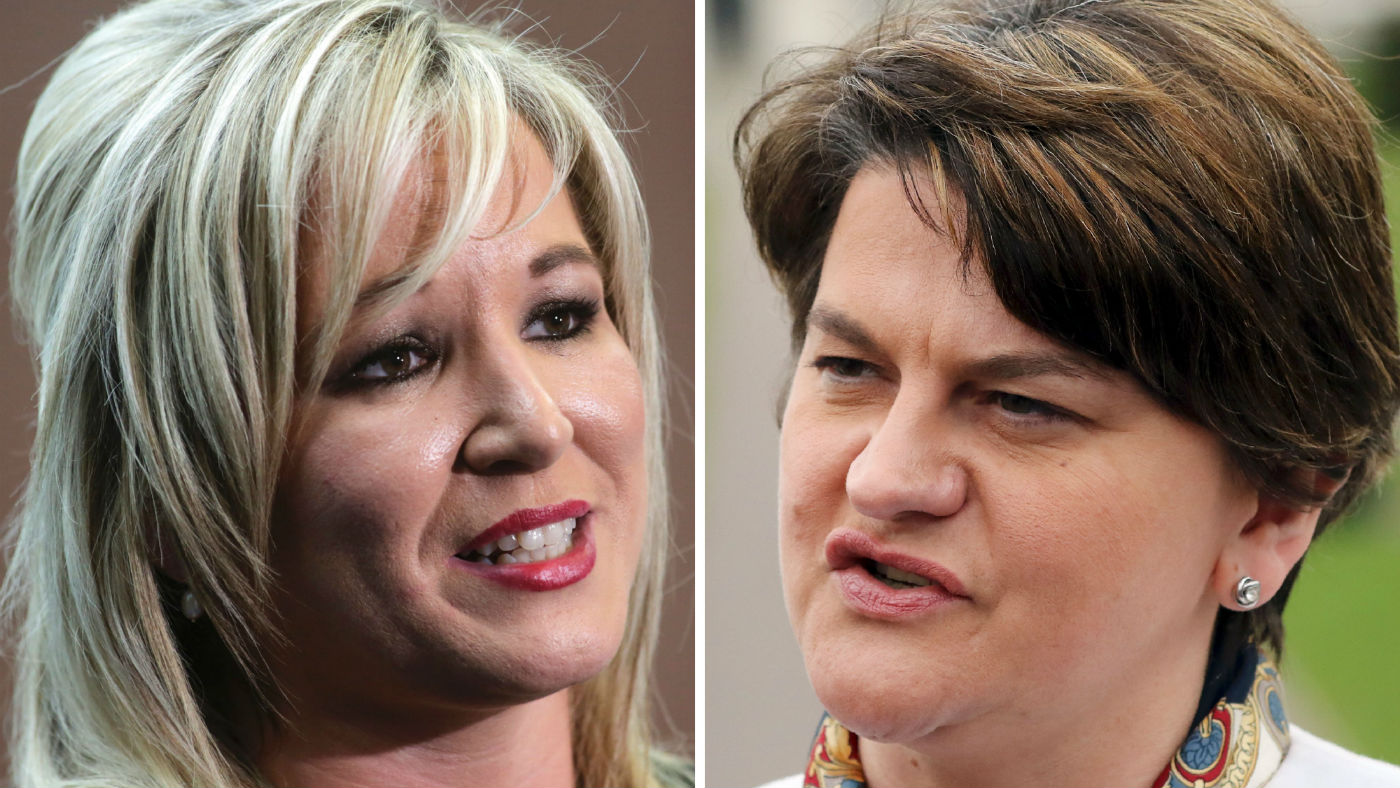Direct rule for Northern Ireland: What's at stake as talks expire
UK government control would 'marginalise' province’s voice and give more power to Westminster

A free daily email with the biggest news stories of the day – and the best features from TheWeek.com
You are now subscribed
Your newsletter sign-up was successful
Northern Ireland could be back under direct rule from Westminster if its political parties fail to reach a deal by today's extended deadline for power-sharing talks.
However, although it is unlikely the Democratic Unionist Party and Sinn Fein will reach an agreement in time, they could be granted a reprieve.
Unionist sources told the Belfast Telegraph they believe Northern Ireland Secretary James Brokenshire will suspend talks until after July to allow the politicians to take their holidays.
The Week
Escape your echo chamber. Get the facts behind the news, plus analysis from multiple perspectives.

Sign up for The Week's Free Newsletters
From our morning news briefing to a weekly Good News Newsletter, get the best of The Week delivered directly to your inbox.
From our morning news briefing to a weekly Good News Newsletter, get the best of The Week delivered directly to your inbox.
"He can introduce direct rule or call another Assembly election in the autumn, but talks insiders believe he will opt for continuing discussions between the parties at Stormont after a break," adds the paper.
If direct rule were imposed, it would be for the first time since 2007, when Tony Blair was prime minister, the BBC reports.
It would need a law to be passed in Parliament suspending the Northern Ireland Assembly, after which the government would take control of issues such as policing, prisons, transport and housing, which are devolved to Stormont.
The province has been governed by Westminster for 32 out of the last 44 years.
A free daily email with the biggest news stories of the day – and the best features from TheWeek.com
According to Professor Rick Wilford of Queen's University Belfast in agendaNi magazine, it would also "marginalise" the province's voice and give more power to the wants of Westminster.
He adds: "Should [direct rule] be renewed again, then expect an expanded Northern Ireland Office pursuing a largely unbridled UK government agenda, not least in relation to Brexit, and a severely diminished level of parliamentary scrutiny."
-
 Political cartoons for February 20
Political cartoons for February 20Cartoons Friday’s political cartoons include just the ice, winter games, and more
-
 Sepsis ‘breakthrough’: the world’s first targeted treatment?
Sepsis ‘breakthrough’: the world’s first targeted treatment?The Explainer New drug could reverse effects of sepsis, rather than trying to treat infection with antibiotics
-
 James Van Der Beek obituary: fresh-faced Dawson’s Creek star
James Van Der Beek obituary: fresh-faced Dawson’s Creek starIn The Spotlight Van Der Beek fronted one of the most successful teen dramas of the 90s – but his Dawson fame proved a double-edged sword
-
 How corrupt is the UK?
How corrupt is the UK?The Explainer Decline in standards ‘risks becoming a defining feature of our political culture’ as Britain falls to lowest ever score on global index
-
 The high street: Britain’s next political battleground?
The high street: Britain’s next political battleground?In the Spotlight Mass closure of shops and influx of organised crime are fuelling voter anger, and offer an opening for Reform UK
-
 Is a Reform-Tory pact becoming more likely?
Is a Reform-Tory pact becoming more likely?Today’s Big Question Nigel Farage’s party is ahead in the polls but still falls well short of a Commons majority, while Conservatives are still losing MPs to Reform
-
 Taking the low road: why the SNP is still standing strong
Taking the low road: why the SNP is still standing strongTalking Point Party is on track for a fifth consecutive victory in May’s Holyrood election, despite controversies and plummeting support
-
 What difference will the 'historic' UK-Germany treaty make?
What difference will the 'historic' UK-Germany treaty make?Today's Big Question Europe's two biggest economies sign first treaty since WWII, underscoring 'triangle alliance' with France amid growing Russian threat and US distance
-
 Is the G7 still relevant?
Is the G7 still relevant?Talking Point Donald Trump's early departure cast a shadow over this week's meeting of the world's major democracies
-
 Angela Rayner: Labour's next leader?
Angela Rayner: Labour's next leader?Today's Big Question A leaked memo has sparked speculation that the deputy PM is positioning herself as the left-of-centre alternative to Keir Starmer
-
 Is Starmer's plan to send migrants overseas Rwanda 2.0?
Is Starmer's plan to send migrants overseas Rwanda 2.0?Today's Big Question Failed asylum seekers could be removed to Balkan nations under new government plans